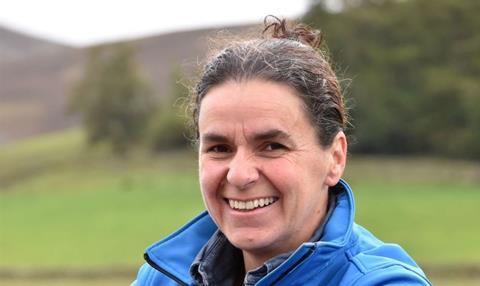The Scottish Red Meat Resilience Group (SRMRG) has published the sector’s position paper on mitigating climate change.

The SRMRG said that the paper has “a bold ambition to establish Scotland as one of the greenest red meat producers in the world.” The paper, Steak in the Ground, outlines the changes which producers, auctioneers, processors and transporters can make to “transform the industry.”
According to the SRMRG, the paper commits the Scottish red meat industry to advancing a science-based route map to net zero, a project that will take place over the next two years. The route map includes five key pledges, which include prioritising reskilling and upskilling, securing a baseline emissions measurement, enhancing brand image and supporting all of those involved in a ‘Just Transition’ to secure livelihoods as the economy shifts to climate-friendly production.
SRMRG includes representatives from across the supply chain include:
- Pig Industry Leadership Group
- Quality Meat Scotland (QMS)
- Scottish Beef Association
- National Farmers’ Union (NFU) Scotland
- National Sheep Association Scotland
- Scottish Association of Meat Wholesalers
- Scottish Craft Butchers.
The Group said that its Steak in the Ground report will be followed up with targeted activities with stakeholders and roundtable engagement with MSPs, MPs and researchers.
“Vital to the future of our industry”
Kate Rowell, chair of SRMRG and QMS, said: “Scotland has the potential to be one of the most environmentally friendly red meat producers in the world but we all know there is work to be done. With SRMRG’s unique position looking both ways along the whole supply chain, we know that every business in the red meat sector is at a different stage on its environmental journey as well as the commercial realities we are working in.”
She continued: “We are also a very diverse sector - from hill farms to auction markets and transport to technology – so it’s not a matter of changing a widget in a factory. It’s a longer process to make and instil change in the whole supply chain and to see the results. Our pledge is to support businesses as the science, data and political demands evolve to meet their targets efficiently and significantly.”
Rowell said that it was “imperative” that the industry work together. She added: “This is not only for the environment, but also for financial and social prosperity which is vital to the future of our industry and of rural communities in Scotland.”
This story was originally published on a previous version of the Meat Management website and so there may be some missing images and formatting issues.












